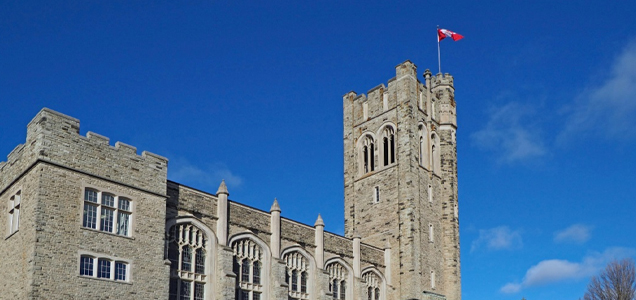
Study in Canada
Every year, many people visit Canada, the land of limitless possibilities. It goes without saying that the country is an ideal study destination for international students from all over the world. Through their high-quality education programmes, Canadian tertiary institutions help many students realise their dreams.
Are you thinking about studying in Canada? Here are a few reasons why you should apply to any of the world's top educational institutions right now:
Academic Excellence
For their outstanding academic excellence, Canadian universities are consistently ranked in the World University Rankings. 30+ Canadian universities are ranked as the best in the world by the QS World University Rankings and the Times Higher Education World University Rankings.
This can only be attributed to the high educational standards provided to scholars.


Research Opportunities
International students benefit from numerous research opportunities in fields such as medicine, natural sciences, agriculture, engineering, and technology.
Universities in Canada house roughly 40% of the country's research and development facilities.
Affordability
Making a career investment through any Canadian tertiary institution is completely worthwhile!
Aside from the low tuition, Canadian colleges and universities are located in cities and towns with low-cost housing.
Not to mention the numerous scholarship opportunities.


Pre-study & Post-study Work Opportunities
Because Canada is economically sound, its students have access to pre- and post-study work opportunities.
Students can earn extra money by working part-time jobs with flexible hours while studying.
A Post Study Work Permit allows you to work in Canada for another three years after you finish your studies.
Permanent Resident Opportunities
Foreign students are regarded as the best candidates for permanent residency in Canada.
Because the majority of international students have or are in the process of acquiring in-demand skills, they are viewed as ideal candidates for PR.
Students in Canada are young and learn the official languages of the country, making them the best candidates for PR.


Best Country for Living
Canada is the world's best country for high-quality living. According to US News & World Report, Canada is the best country in the world for quality of life.
This means that international students who come to the country can be assured of a high standard of living while studying.
Cultural Diversity
Canada, as a multicultural society, provides a culturally diverse learning environment for international students.
Scholars from all ethnic groups are recognised and welcomed at Canadian colleges and universities.
Canadian cities are teeming with residents and citizens who express themselves in their native tongues when the occasion calls for it.


Education System in Canada
Canadian territories and provinces are responsible for primary, secondary, and postsecondary education. Canadian educational standards continue to be phenomenal from cradle to post-graduate studies and beyond. Canada is constantly enacting policies that allow international students to access world-class educational opportunities.
Today, Canadian degrees and diplomas help foreign graduates gain access to globally recognised career opportunities. With the assistance of the Canadian government, international students can now take advantage of undergraduate, graduate, and post-graduate study programmes in rural and suburban Canada.

Certificates & Diplomas
In Canada, obtaining a certificate usually takes one year or less. Foreign students, on the other hand, can complete their degrees in at least two years. Students with a Diploma from a Canadian higher education institution are eligible for a co-op internship and a bachelor's degree.










Associate Degree
An associate degree is a two-year undergraduate programme in Canada that allows qualified students to gain admission to associate universities. The student would enrol in third-year coursework at an associate university with a 60-credit pass score.










Bachelor’s Degree
A Bachelor's degree in Canada takes between three and four years to complete. A four-year professional degree programme includes two years of foundational studies and two years of specialised education.










Post-graduate Diploma & Certificate
In Canada, students can pursue a variety of certificate and diploma programmes at the post-graduate level. These programmes last one to two years and provide certifications that can help launch a master's degree programme.










Master’s Degree
Depending on the certificate option, a Master's degree programme can be completed in one or two years. You could apply for the Masters by Thesis programme (which requires the submission of a research project) or the Masters by Non-thesis programme.










Doctorate or PhD
In Canada, obtaining a recognised doctorate or Ph.D. may require 4-7 years of study in a specific field. Following their studies, qualified students must defend their work in front of a panel of specialists.


Cost of Studying and Living in Canada
Most foreign students' fears revolve around the cost of studying and living abroad. Fortunately, education in Canada is reasonably priced. Unlike most English-speaking countries, Canada offers low tuition to international students while still providing a high-quality education.
The cost of living in Canada is low when housing, transportation, food, and health insurance are considered.


Tuition Fee
Undergraduates studying in Canada should not expect to spend more than CAD 8,000 to CAD 30,000. Tuition fees for Post-graduate, Master's, and Doctorate programmes vary depending on the stream or course. An MBA programme should ideally cost between $30,000 and $40,000.


Transportation
Foreign students in Canada can commute using public transportation such as taxis, buses, subways, and trains. Transportation to and from their respective colleges or universities should cost between CAD 100 and CAD 200.


Accommodation
Foreign students can rely on off-campus housing in very few cases where the university does not provide on-campus housing. Outside of campus housing should cost between CAD 400 and CAD 700 per month on average.


Health Insurance
Foreign students studying in Canada must have health insurance. It is a mandatory requirement for all programmes, and the cost varies by region in Canada.


Living Expenses
A student in Canada should spend $15,000 on socialising, grocery shopping, and emergencies. The cost of communication varies depending on the call or data plan. A library membership can help you save a lot of money on books and supplies.


Work While Studying in Canada
Working part-time while studying is one of the reasons why international students choose to study in Canada. Students who work part-time gain enough job experience and save enough money to cover their living expenses.
More importantly, foreign students do not require work permits to obtain a paid part-time job.










Working On-campus
Full-time students with study permits and social insurance numbers (SIN) can work on campus in their departments, libraries, or registrar's offices.










Working Off-campus
Foreign students prefer to work up to 20 hours per week off-campus. The jobs allow them to work at least 20 hours per week during the school year and full-time during the summer.










Working Under the Co-op or Internship Programs
Foreign students typically prefer to work up to 20 hours per week off-campus. They can work at least 20 hours per week during the school year and full-time during the summer.
Are You Coming into Canada for Studies Soon? Then You’ll Need the Following


Pack Essentials
Begin packing your essentials, such as medicine, certificates, a laptop, a mobile phone, a travel document, a student visa, and extra clothing.


Search for Accommodation
If possible, secure dependable lodging before departing for Canada. Use the information on student websites to help you narrow down your search for housing.


Organize Your Finance
While settling in Canada, you'll undoubtedly require additional funds for mobility, phone, and housing - which you can rely on your GIC return to help you organise your finances.
Get professional immigration help
Need a strategy call or your documents reviewed by our team of immigration experts? See our additional services for you and your loved ones.
Book an appointmentWork permit
A work permit is a legal document that enables a foreign national to work while present in Canada. About 500,000 temporary foreign workers receive work permits from Canada each year from all over the world.
